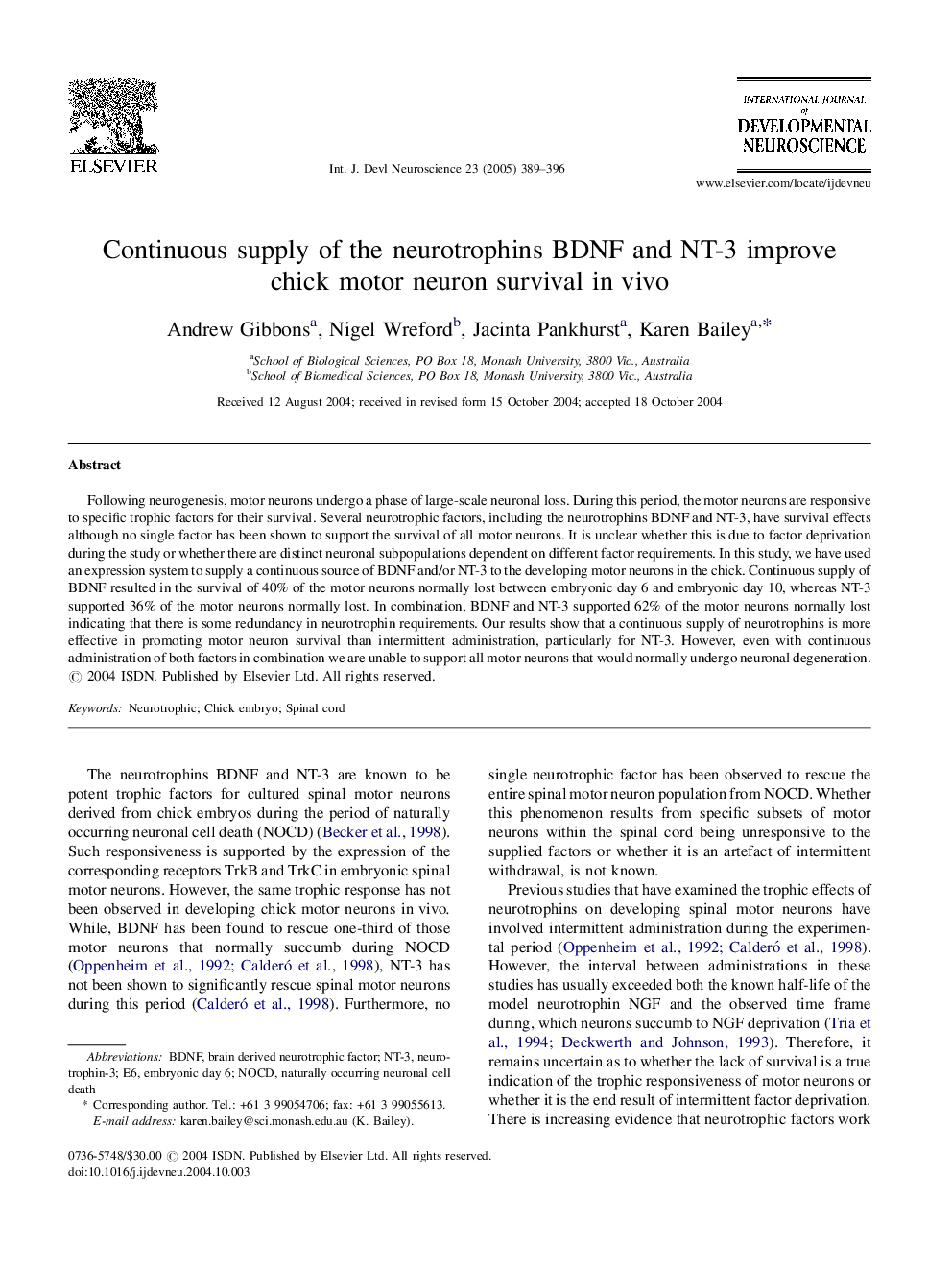| Article ID | Journal | Published Year | Pages | File Type |
|---|---|---|---|---|
| 9933590 | International Journal of Developmental Neuroscience | 2005 | 8 Pages |
Abstract
Following neurogenesis, motor neurons undergo a phase of large-scale neuronal loss. During this period, the motor neurons are responsive to specific trophic factors for their survival. Several neurotrophic factors, including the neurotrophins BDNF and NT-3, have survival effects although no single factor has been shown to support the survival of all motor neurons. It is unclear whether this is due to factor deprivation during the study or whether there are distinct neuronal subpopulations dependent on different factor requirements. In this study, we have used an expression system to supply a continuous source of BDNF and/or NT-3 to the developing motor neurons in the chick. Continuous supply of BDNF resulted in the survival of 40% of the motor neurons normally lost between embryonic day 6 and embryonic day 10, whereas NT-3 supported 36% of the motor neurons normally lost. In combination, BDNF and NT-3 supported 62% of the motor neurons normally lost indicating that there is some redundancy in neurotrophin requirements. Our results show that a continuous supply of neurotrophins is more effective in promoting motor neuron survival than intermittent administration, particularly for NT-3. However, even with continuous administration of both factors in combination we are unable to support all motor neurons that would normally undergo neuronal degeneration.
Keywords
Related Topics
Life Sciences
Biochemistry, Genetics and Molecular Biology
Developmental Biology
Authors
Andrew Gibbons, Nigel Wreford, Jacinta Pankhurst, Karen Bailey,
